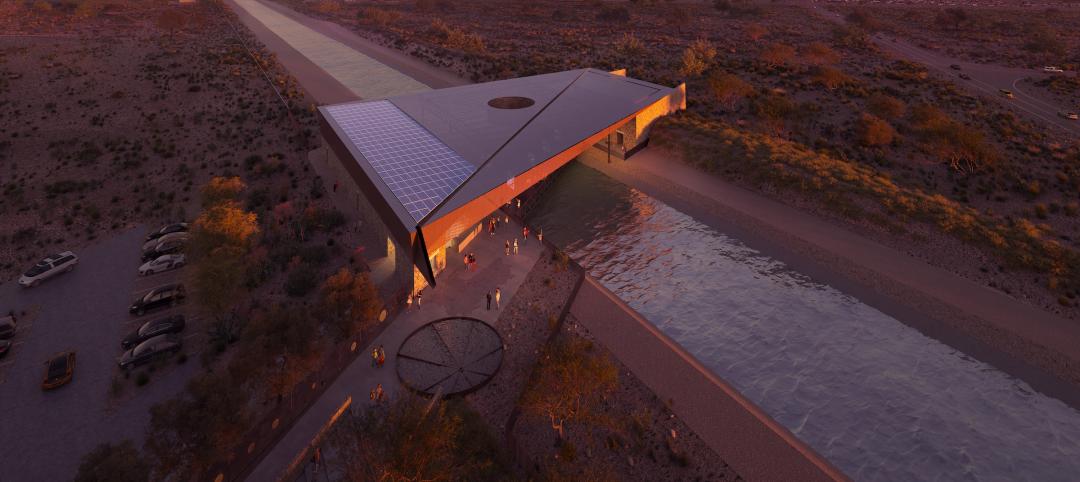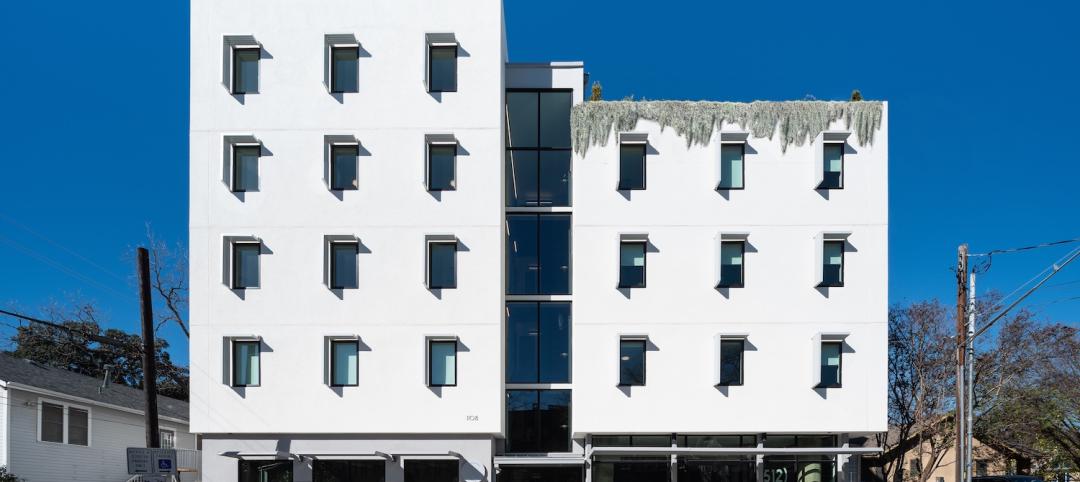The American Institute of Architects (AIA) and the National Council of Architectural Registration Boards (NCARB) are among several organizations who have helped found the Alliance for Responsible Professional Licensing (ARPL)—a new coalition of technical professions focused on educating policymakers and the public about the importance of rigorous professional licensing standards.
ARPL is a unique coalition that brings together professional organizations and their registration boards at a time when there is significant concern over the appropriate level of licensing required by law. The coalition was formed to ensure their voices are heard by policymakers and the public amid the growing debate around licensing.
“NCARB and AIA may approach the licensing debate from different perspectives but we fundamentally agree that rigorous standards must be maintained in order to protect the public we both serve,” said NCARB CEO Michael J. Armstrong. “Complex professions are at risk of being swept up in broad calls to reduce licensing requirements for occupations and vocations. It is important for us to work with other technical professions to ensure public safety isn’t compromised by broad brush deregulatory efforts.”
“When an architect designs a hospital or a school, the public must have confidence in its safety and structural integrity,” said AIA EVP/CEO Robert Ivy, FAIA. “The best way to maintain the public’s confidence is to continue to require that architects demonstrate rigorous and ongoing education, examination, and experience. Attempts to weaken or undermine professional licensing requirements for architects not only harm our profession, but could potentially endanger public health, safety, and welfare.”
The formation of the Alliance reflects mutual interest between regulatory organizations and their professional society counterparts in making the case for reasonable regulation. Although the regulatory associations’ mission is the protection of public, and the professional societies are the voices of their respective professions, recent trends and challenges in the regulatory and legislative environment have called for these groups to proactively engage together in the narrative around the importance of reasonable regulation and licensing.
In addition to AIA and NCARB, members of the ARPL include the American Institute of Certified Public Accountants (AICPA), American Society of Civil Engineers (ASCE), Council of Landscape Architectural Registration Boards (CLARB), National Association of State Boards of Accountancy (NASBA), National Society of Professional Engineers (NSPE) and National Council of Examiners for Engineering and Surveying (NCEES).
Related Stories
Cultural Facilities | Nov 21, 2023
Arizona’s Water Education Center will teach visitors about water conservation and reuse strategies
Phoenix-based architecture firm Jones Studio will design the Water Education Center for Central Arizona Project (CAP)—a 336-mile aqueduct system that delivers Colorado River water to almost 6 million people, more than 80% of the state’s population. The Center will allow the public to explore CAP’s history, operations, and impact on Arizona.
MFPRO+ New Projects | Nov 21, 2023
An 'eco-obsessed' multifamily housing project takes advantage of downtown Austin’s small lots
In downtown Austin, Tex., architecture firm McKinney York says it built Capitol Quarters to be “eco-obsessed, not just eco-minded.” With airtight walls, better insulation, and super-efficient VRF (variable refrigerant flow) systems, Capitol Quarters uses 30% less energy than other living spaces in Austin, according to a statement from McKinney York.
MFPRO+ News | Nov 21, 2023
California building electrification laws could prompt more evictions and rent increases
California laws requiring apartment owners to ditch appliances that use fossil fuels could prompt more evictions and rent increases in the state, according to a report from the nonprofit Strategic Actions for a Just Economy. The law could spur more evictions if landlords undertake major renovations to comply with the electrification rule.
Codes and Standards | Nov 21, 2023
Austin becomes largest U.S. city to waive minimum parking requirements
Austin, Texas recently became the largest city in the United States to stop requiring new developments to set a minimum amount of parking. The Austin City Council voted 8-2 earlier this month to eliminate parking requirements in an effort to fight climate change and spur more housing construction as Texas’s capitol grapples with a housing affordability crisis.
MFPRO+ News | Nov 21, 2023
Underused strip malls offer great potential for conversions to residential use
Replacing moribund strip malls with multifamily housing could make a notable dent in the housing shortage and revitalize under-used properties across the country, according to a report from housing nonprofit Enterprise Community Partners.
Giants 400 | Nov 16, 2023
Top 100 Science + Technology Facility Architecture Firms for 2023
Gensler, HDR, Page Southerland Page, Flad Architects, and DGA top BD+C's ranking of the nation's largest science and technology (S+T) facility architecture and architecture/engineering (AE) firms for 2023, as reported in Building Design+Construction's 2023 Giants 400 Report. Note: This ranking factors revenue from all science and technology (S+T) buildings work, including laboratories, research buildings, technology/innovation buildings, pharmaceutical production facilities, and semiconductor production facilities.
Resiliency | Nov 16, 2023
How inclusive design supports resilience and climate preparedness
Gail Napell, AIA, LEED AP BD+C, shares five tips and examples of inclusive design across a variety of building sectors.
Retail Centers | Nov 15, 2023
Should retail developers avoid high crime areas?
For retailers resolute to operating in high crime areas, design elements exist to mitigate losses and potentially deter criminal behavior.
MFPRO+ News | Nov 15, 2023
Average U.S multifamily rents drop $3 to $1,718 in October 2023: Yardi Matrix
Multifamily fundamentals continued to soften and impact rents last month, according to the latest Yardi Matrix National Multifamily Report. The average U.S. asking rent dropped $3 to $1,718 in October, with year-over-year growth moderating to 0.4%, down 40 basis points from September. Occupancy slid to 94.9%, marking the first decline in four months.
MFPRO+ Special Reports | Nov 14, 2023
Register today! Key trends in the multifamily housing market for 2024 - BD+C Live Webinar
Join the BD+C and Multifamily Pro+ editorial team for this live webinar on key trends and innovations in the $110 billion U.S. multifamily housing market. A trio of multifamily design and construction experts will present their latest projects, trends, innovations, and data/research on the three primary multifamily sub-sectors: rental housing, senior living, and student housing.

















